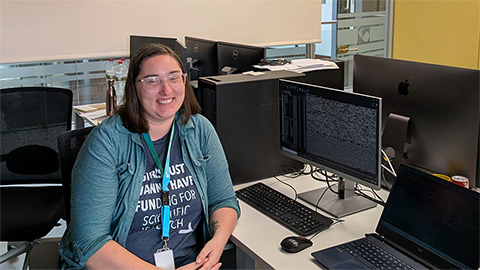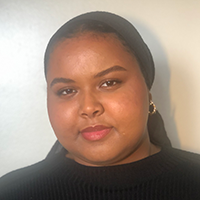Conference to highlight African women in STEM
The world has recognized the contributions of women scientists from the past such as Marie Curie and Rosalind Franklin as well as present-day researchers such as Jennifer Doudna and Emmanuelle Charpentier who shared the 2020 Nobel Prize in chemistry for their work on CRISPR gene-editing technology. The accomplishments of these women highlight the need for diversity and gender parity in science, technology, engineering and mathematics, but largely missing from this recognition is the work of African women.
Only about 31% of STEM researchers in sub-Saharan Africa are women, and this number decreases in low-income African countries. In response to this disparity, the African Academy of Sciences released a study in 2020 on factors that motivate or inhibit African women in STEM. The study found that family responsibilities, difficulty finding work–life balance and traditional beliefs that women are unequal to men in STEM were inhibitors. By contrast, when successful African women in STEM were asked what motivated them to pursue STEM careers, the most common response was their self-belief, followed by academic preparation and female mentors.
If more African women are able to obtain the mentorship, training and funding required to boost their self-belief and prepare them academically, the number of African women succeeding in STEM fields might increase.
To this end, in February 2021, Anna Ampaw, a chemistry Ph.D. graduate, founded the non-profit organization Empowering Female Minds in STEM, also known as EFeMS.
The main goal of EFeMS is to combat the gender disparity observed in the STEM fields in African countries by cultivating a community of African women who are skillful leaders in higher STEM education and careers. EFeMS aims to do this by equipping women with the skills and resources needed to help them excel in academics, boost their self-belief and reduce their financial burden.
EFeMS programs include one-on-one mentorship, skill-building master classes, networking opportunities and scholarships. In addition, each year, EFeMS hosts a skill-based boot camp to help African women in STEM strengthen their communication, leadership and creativity skills, as well as a virtual research conference to engage women all over Africa to participate in research talks, poster presentations and networking opportunities.
This year’s EFeMS Research Conference will be held April 9, starting at 8 a.m. EDT. The online conference will showcase outstanding and innovative research with the aim of amplifying the voices of African women who are breaking barriers in STEM while engaging women all over Africa. If you are interested in participating in this virtual event, register here.
Throughout history, the world has benefited from the work of women scientists, but the potential of African women in science remains largely untapped. EFeMS seeks to unlock this potential and highlight the significance and successes of African women in STEM now and in the future.
Enjoy reading ASBMB Today?
Become a member to receive the print edition four times a year and the digital edition monthly.
Learn moreGet the latest from ASBMB Today
Enter your email address, and we’ll send you a weekly email with recent articles, interviews and more.
Latest in Opinions
Opinions highlights or most popular articles

Women’s health cannot leave rare diseases behind
A physician living with lymphangioleiomyomatosis and a basic scientist explain why patient-driven, trial-ready research is essential to turning momentum into meaningful progress.

Making my spicy brain work for me
Researcher Reid Blanchett reflects on her journey navigating mental health struggles through graduate school. She found a new path in bioinformatics, proving that science can be flexible, forgiving and full of second chances.

The tortoise wins: How slowing down saved my Ph.D.
Graduate student Amy Bounds reflects on how slowing down in the lab not only improved her relationship with work but also made her a more productive scientist.

How pediatric cataracts shaped my scientific journey
Undergraduate student Grace Jones shares how she transformed her childhood cataract diagnosis into a scientific purpose. She explores how biochemistry can bring a clearer vision to others, and how personal history can shape discovery.

Debugging my code and teaching with ChatGPT
AI tools like ChatGPT have changed the way an assistant professor teaches and does research. But, he asserts that real growth still comes from struggle, and educators must help students use AI wisely — as scaffolds, not shortcuts.

AI in the lab: The power of smarter questions
An assistant professor discusses AI's evolution from a buzzword to a trusted research partner. It helps streamline reviews, troubleshoot code, save time and spark ideas, but its success relies on combining AI with expertise and critical thinking.

